Modernization of Cosmetics Regulation Act of 2022 (MoCRA)
Modernization of Cosmetics Regulation Act 2022 (MoCRA)
MoCRA: What Is It and How Will It Impact My Business?
The Modernization of Cosmetics Regulation Act of 2022 (MoCRA) was signed into law on December 29, 2022 as part of the Consolidations Appropriation Act. This legislation significantly impacts the US cosmetics industry by vastly increasing the level of regulatory oversight the US Food and Drug Administration (FDA) has over this industry. MoCRA represents the most extensive regulatory change to the US cosmetics industry since 1938.
MoCRA will directly impact any manufacturer or processor that is currently, or intends to, sell or distribute cosmetics products in the United States. Changes to the regulations impact every aspect of the product development and commercialization lifecycle, from manufacturing, to product labeling and adverse event reporting.
For consumers, these additional regulations will help to ensure product safety and transparency. For brandholders and manufacturers, these new regulations will require increased reporting and adherence to stricter regulatory requirements.
Speak to An Expert
New Requirements Under MoCRA Include:
![]()
Mandatory Facility Registration with the FDA
Any establishment that manufactures or processes cosmetics products distributed in the United States must register their facilities with FDA and renew their registration every two years. Registration must be completed through the FDA’s Cosmetics Direct portal or through the Electronic Submissions Gateway (ESG).
Under MoCRA, the FDA now has the authority to suspend a facility’s registration if the agency determines a cosmetic product manufactured or processed by the registered facility and distributed in the United States has a reasonable probability of causing serious adverse health consequences or death to humans, and the agency has a reasonable belief that other products at the facility may be similarly affected.
If a facility’s registration is suspended, it is prohibited from selling or distributing products from that facility in the United States.

Product Listings are Required for All Products Marketed in the United States
Under MoCRA, each marketed cosmetic product must be registered with the FDA by the assigned Responsible Person. Each registered product must include information, such as information on the product ingredients, and must be updated anually.
Responsible person means the manufacturer, packer, or distributor of a cosmetic product whose name appears on the label of such cosmetic product in accordance with section 609(a) of the FD&C Act or section 4(a) of the Fair Packaging and Labeling Act.
![]()
Manufacturers Should Comply with Current Good Manufacturing Practices (cGMP)
As its name implies, cGMP allows manufacturers to demonstrate their commitment to safeguarding the quality and safety of their finished cosmetics products.
MoCRA requires that industry comply with regulations that FDA will establish for cGMP. While these regulations are not yet finalized, it is recommended manufacturers begin to ensure compliance with the guidance outlined in Draft Guidance for Industry: Cosmetic Good Manufacturing Practices.
Additionally, as the US Food and Drug Administration (FDA) is continuing their harmonization efforts with International Organization for Standardization (ISO) standards, it is recommended for manufacturers to comply with ISO standard for cosmetic GMPs (ISO 22716:2007).

Mandatory Reporting of Serious Adverse Events
MoCRA requires mandatory reporting of any serious adverse events to the US Food and Drug Administration.
Serious adverse events associated with the use of cosmetic products in the United States must be recorded and reported to FDA within 15 business days after the report is received by the responsible person (the manufacturer or processor listed on the label of the product). The responsible person must include a copy of the label on or within the retail packaging of such cosmetic product. If the responsible person receives medical or other information about the adverse event within 1 year of the initial report to FDA, they must submit this new information to FDA within 15 business days.
FDA will also require access to all adverse event reports during an inspection, so proper document management systems should be implemented by the facility in preparation of future FDA audits. Per MoCRA, adverse event records must be maintained for a minimum of 6 years following the report (unless exempt).

MoCRA Grants the FDA Mandatory Recall Authority
In the case where the agency determines that there is a reasonable probability that a cosmetic is adulterated or misbranded and the use of or exposure to the cosmetic will cause serious adverse health consequences or death, and the responsible person has not already done so voluntarily, MoCRA gives the US Food and Drug Administration the authority to order a mandatory recall of said cosmetics product.
In the event a product recall is necessary, responsible persons should have formal recall procedures already in place to allow for swift and effective enactment of the product recall.

Adequate Safety Substantiation of Cosmetic Products
Companies and individuals who manufacture or market cosmetics have a responsibility to ensure the safety of their products. While there are no formal guidelines on the specific tests required to demonstrate the safety of individual products or ingredients, responsible persons are required to ensure and maintain records supporting adequate safety substantiation of their cosmetic products and have that data readily available upon FDA inspection.
Responsible persons are encouraged to use safety data that is already available on individual ingredients and on products with similar formulations to support the safety of their products. It may also be necessary to conduct toxicological and other testing methods to fill in any gaps in the information that’s available to determine the safety of each ingredient and the finished product. All data used to support the safety of the product are required to have been derived from scientifically robust methods.
Unsure if your data fully demonstrates the FDA’s expectation for safety substantiation? Accorto can conduct a full review of your safety substantiation data, complete a gap analysis on any additional data or testing needed to fulfill the FDA’s legal requirement for safety, and provide a strategic plan to address data deficiencies.

Additional Label Requirements and Allergen Warnings
MoCRA establishes labeling requirements for all cosmetics products, including general requirements around contact information as well as required warnings for fragrance allergens.
Labels are now required to include the domestic address, domestic phone number, and electronic contact information (such as a website or email address) for the responsible person to ensure consumers are easily able to report cases of adverse events.
Additionally, manufacturers must now identify each fragrance allergen included in said product and provide clear warnings on the label to alert consumers to those allergens. Substances that are fragrance allergens for the purposes of this regulation will be determined by the Agency and a notice will be issued to industry for implementation.
We Make MoCRA Easy
Accorto is your single-point solution to MoCRA compliance. Our team has extensive experience with helping companies bring their organizations into compliance with evolving regulatory landscapes across a range of FDA-regulated sectors. With our in-house staff of regulatory professionals and writers, scientists, quality system/cGMP experts, and packaging & labeling specialists, we have the expertise to assist you with every aspect of the new MoCRA requirements.

Facility Registration & Product Listings
- Annual management of registration renewals and product listing updates
- US Agent/Responsible Person Support
- Supply Chain Management

cGMP & QMS
- cGMP Gap Analysis
- cGMP Internal Audit and Facility Audit Preparation
- Documentation and process development/review
- Quality Management System (QMS) Design, Implementation and Harmonization
- Supplier Qualification and Audits
- USDA Animal Welfare Audits
- Adverse Event Reporting
- Recall Procedure Development

Safety Substantiation and Product Labeling
- Toxicology
- Biocompatibility
- Bacteriology
- Stability Testing
- Packaging Extractability & Leachability
- Label Compliance Review
- Allergen Warning Review
- Consumer Research Studies
Schedule A Consult
and let’s explore how we can help you reach your goals. Our expert team is ready to provide tailored solutions just for you.
Contact us to schedule your consultation at NO cost & NO obligation.


